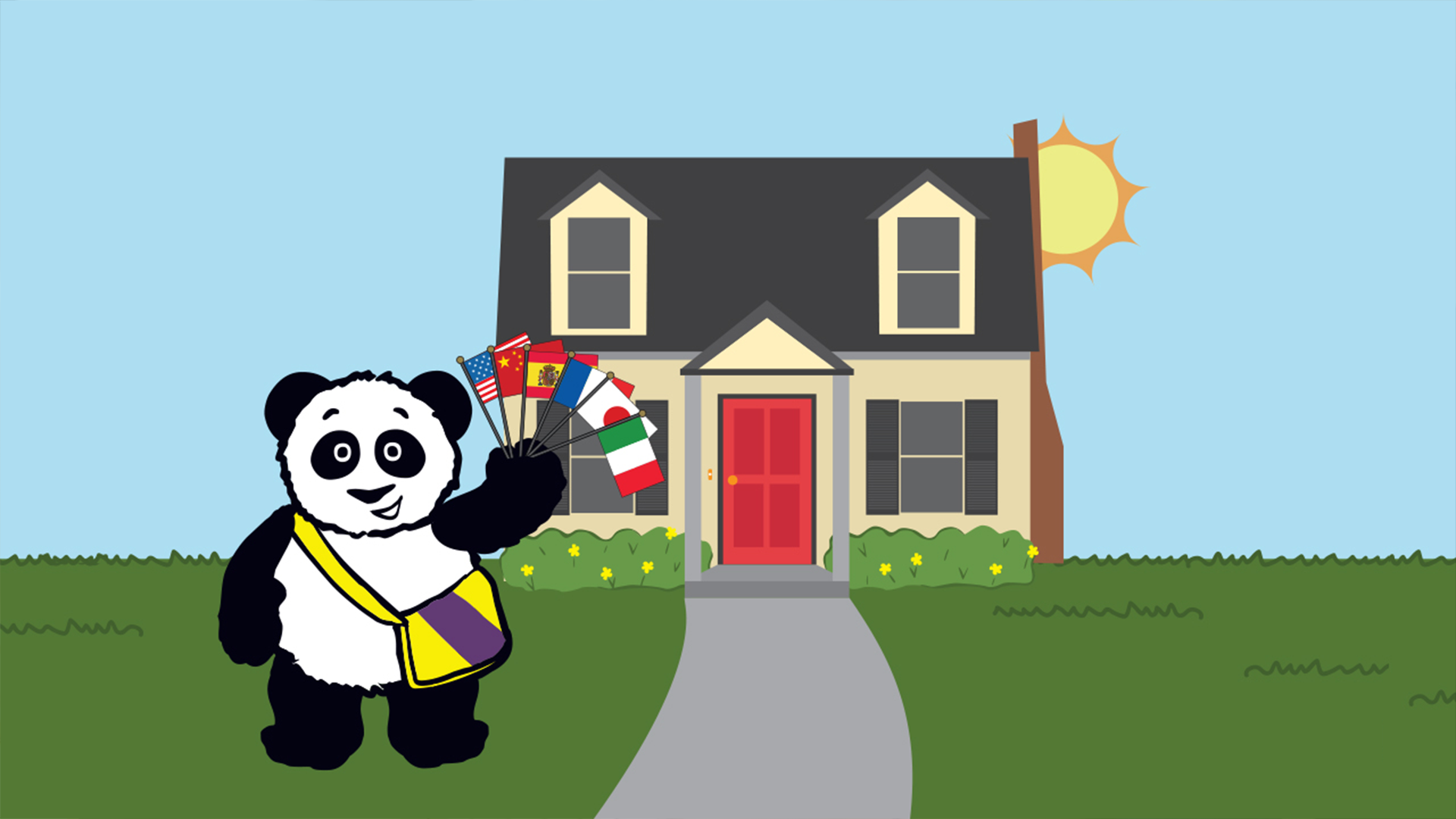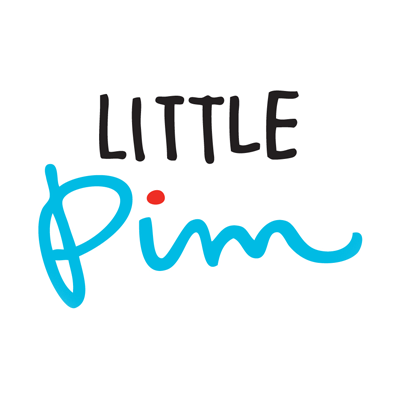
LITTLE PIM BLOG
Incorporating Language Learning into the 2016 Olympics
Flash forward a couple weeks from today: It’s a sticky summer day, and to cool down and spend some quality time with your kiddos, you decide to go home, sprawl out on the couch, and watch the Olympic games. Your child becomes disengaged, or maybe your kid loves the games and is glued to the television. Either way, you are missing out on a huge opportunity to teach your children Portuguese and make them feel a deeper connection to Rio than the screen in your living room. We, here at Little Pim, recognize this language learning opportunity, and luckily, we offer lessons and flash cards in Portuguese that will make your son or daughter speak as well as Gabby Douglas flips in the time of a Usain Bolt 100 meter dash.
Sports Vocabulary
The most obvious vocabulary to introduce to your child during the Olympic games would be basic sports vocabulary, like the words for: ball, referee, pool, court, and field. To try to cultivate the strongest correlation between the words you are teaching and an image, it is probably smart to introduce the vocab as its corresponding image appears on the television.
Additionally, since the words you will be teaching them are about being active, you can make the language learning active. Play a game of catch while watching the 2016 games. When you have the ball, say the English word, and have your child say the Portuguese translation upon catching the ball. They can learn more about how to discuss playtime in Portuguese with the Little Pim “Playtime” lesson, which is available for online purchase. This online accessibility means they can sit on the couch and learn Portuguese on any device with the Olympics on in the background.
Geography
The Olympics has a record number of countries competing this year, so now more than ever the Olympics is a melting pot of cultures. This presents you with the ability to expose your child to a plethora of different countries. With that, you can teach them how to say each country’s name, main languages, and prominent religions in Portuguese. You can pull out a map and point at the country in question as you go along! If your family has roots in a certain country, this is a great time to introduce a bit of that country’s language too; Little Pim lessons could probably help you do so!
Counting
The number system is critical to any language, so it is a good place to start when learning Portuguese. As the shot clock winds down or the race is about to begin, have your son or daughter count down in Portuguese. They will be ready by New Years to count down to 12 AM in Portuguese!
Start by counting numbers 1-10 in Portuguese, then go backwards to start the countdown:
10 – dez
5 – cinco
9 – nove
4 – quatro
8 – oito
3 – três
7 – sete
2 – dois
6 – seis
1 – um
Stats
As each athlete’s statistics are plastered across your television screen, you can teach your little one the words for goal, assist, point, etc. This can be a particularly great exercise with little boys and girls who have already developed a passion for sports
(it is probably genetic) and enjoy memorizing statistics from player cards and a teams’ websites.
Personalize the Activity
If your son or daughter is especially fond of one sport that will be performed during the summer games, make sure to focus on the vocabulary relating to that sport. This will make the language learning of greater value in their eyes, and thereby more fun for them. For example:
Get Involved As a Parent
If you are fluent in Portuguese or have never heard a word of it, speaking the language with your kid makes it a group activity as opposed to a chore. Additionally, if your whole family wants to extend your exposure to Brazilian culture beyond language learning, please refer to a post coming out soon about fun activities infused with Brazilian culture that you can do right at home.
Vocab Reinforcement
For the words to stick, a child needs to become familiar with them by hearing them a number of times. On your way to a mall or weekend get-away, you can review the Portuguese vocab in a fun trivia-like format. The Little Pim flash card set could serve this purpose really well!
Teach Love and Kindness
Sports have the power to transcend countries’ borders, racial divides, and social differences. That power is what makes the Olympics such a beautiful thing to watch, especially today when these issues run rampant in our society. Teaching your child the English words for unity, equality, fairness, and sportsmanship, for example, is a powerful action in it of itself. Imagine the power of teaching them these words in yet another language, like Portuguese.
By teaching your child another language at a young age, you accomplish many things. You make them smarter, you differentiate them from other children their age, and you ultimately make them more valuable to our society and a potential employer. Above all of those things, you make them sensitive to and connected to another country, culture, and way of life. In learning a new language, they are learning to respect differences instead of hate them, just as sportsmanship teaches. Language learning is powerful. Sports are powerful. Rio is the perfect opportunity to combine sports with language learning, an action that could have an amazingly powerful impact on your child.
P.S. It will also be fun!!
Basketball Around the World
During March Madness, as we carefully fill in our NCAA tournament brackets, we tend to think about basketball as a quintessentially American pastime. But the United States hardly has a monopoly on a love of hoops. The sport has thriving leagues and devoted fans across the globe -- in Europe, Asia and South America -- as well.
Here are a few countries where basketball's big:
Israel: Basketball has been bouncing around in Israel for decades. The Israeli Basketball Super League, known in Hebrew as Ligat HaAl, was founded way back in 1954 and has, over the years, exported players to the NBA and pitted its star players against NBA teams in exhibition games. In October 2005, the Maccabi Tel Aviv got a lot of attention when it defeated the Toronto Raptors in an exhibition game in Toronto. It was the first victory for any European or Israeli team over an NBA team on an NBA home court.
China: Hoops is one of China's most popular sports, with hundreds of millions of people both playing and watching the game. (It actually embraced the sport shortly after it was invented in 1891.) The country's most prestigious professional basketball league (yes, there's more than one) is the Chinese Basketball Association, founded in 1995, which has produced NBA players including Yao Ming, Yi Jianlian and Sun Yue. The CBA has imported talent as well, with NBA players like Stephon Marbury, Steve Francis and Gilbert Arenas traveling to play with teams like Beijing Ducks and Shanghai Sharks. Beijing even recently erected a life-size bronze statue of Marbury, who led the Ducks to their first-ever CBA championship win last year.
Spain: Yes, they're mad for soccer in Spain, but they're also big into basketball – or "baloncesto," as it's called in Spanish. Spain's Liga ACB is not only the top-tier professional basketball league in Spain, it's among the best in the world and has turned out NBA superstars like Barcelona-born L.A. Laker Pau Gasol. Last year, Spanish B-ball fans got something new to brag about, when their national team gave Team USA – a new dream team that included NBA superstars like Carmelo Anthony, Kobe Bryan and LeBron James – a serious run for the gold at the 2012 Olympics before ultimately settling for silver.
With basketball mania raging and rebounding through countries from Argentina to Australia, as well as Italy, Macedonia, Greece, the Philippines and France, basketball has become a big-time global sport, crossing cultures and languages. Turns out the whole world's mad for hoops – and not only in March.






